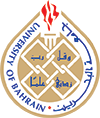Nutritional Assessment and Techniques
COURSE OVERVIEW
This course Provides the students with various methods for screening and assessing the nutritional status of clients and patients in different clinical settings, including various populations, institutions, hospitals, and intensive care units. The nutritional assessment methods include dietary, anthropometric, biochemical, and clinical assessments.
Additionally, students will learn to use new technology, including dietary analysis software, body composition analysis (bioelectrical impedance analysis and ultrasound imaging), and gold-standard methods for measuring energy expenditure and caloric requirements.
KEY TOPICS COVERED
- Introduction to Nutritional Assessment
- Nutritional Screening
- Subjective Global Assessment;
- Anthropometric Methods of Nutritional Assessment
- Biochemical Methods of Nutritional Assessments
- Clinical Methods of Nutritional Assessment
- Dietary Methods of Nutritional Assessment
- Body Composition Methods
- Clinical Scenarios and Final Exam
TARGET AUDIENCE
- Current postgraduate Nutrition student.
- Postgraduate Nutrition students from Gulf Cooperation Council Countries.
- Faculty/staff interested in clinical nutrition.
- Professionals interested in clinical nutrition (Dietitians, Nutritionist, nurses, Physicians).
- Business/industry partners in the field of nutrition.
Instructor
Dr. Sabika Allehdan
Domain
Clinical Nutrition
Duration
4 Weeks
No of Students
30
Date
To be announced
Time
- Week1: Fri 1:00 PM – 8:00 PM & Sat 9:00 AM – 6:00 PM (In-Person)
- Week2: Mon & Wed, 5:00 PM – 8:00 PM (Online)
- Week3: 6 hours Anytime (Asynchronous online)
- Week4: Sat, 9:00 AM-1:00 PM (In-Person)
Level
Language
English
Venue
Fees
800 BHD
Hours
32 hours
Basics of Nutritional Science.
A total of 32 learning hours will be distributed as follows:
- 20 hours: Face to face classes
- 6 hours: Online classes
6 hours: Asynchronous online teaching
- Clinical Scenarios (40%): Participation in the class discussion about some selected clinical scenarios, with at least two scenarios created by the learners themselves.
- Practical Assignment (30%): Specific practical tasks will be conducted during the course (2 Assignments)
- Final Exam (30%): The final exam consists of 30 questions that are MCQs and/or true-false questions.
- Fees: 800 BD
Credit-bearing Micro-credentials are stackable to qualify candidates for the ESPEN diploma in clinical nutrition and metabolism.
Saudi Society for Clinical Nutrition (SAPEN) and European Society for Clinical Nutrition and Metabolism (ESPEN)
All learners will be provided with a Microsoft account to use Microsoft Teams and ESPAN account to reach recorded tutorial.
For further Information, please contact:
Mr. Mohammed Al-Hooti
Tel: +973-33777339
Email: malhooti@uob.edu.bh
